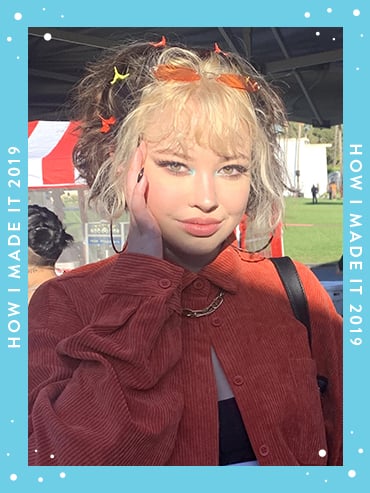Meet the Teenager Who Led the Ontario Student Sex-Ed Walkout—and Started a Movement
Rayne Fisher-Quann on how she made it happen


Name: Rayne Fisher-Quann
Job title: Co-Founder, Students Say No; activist and public speaker
Age: 18
From: Toronto
Currently lives in: Vancouver
Education: First year in the faculty of science, University of British Columbia
On September 21, 2018, thousands of Ontario high school students walked out of class to protest changes to the sex-ed curriculum put forth by Premier Doug Ford’s Conservative government. The walkout brought students to the streets, to Queen’s Park in Toronto (home of the provincial government)—and thrust one particular 17-year-old into the spotlight.
Rayne Fisher-Quann, who organized the walkout along with Indygo Arscott (who started the Decolonize Canadian Schools movement), has always been political, but planning a province-wide student walkout was something she’d never imagined doing. “I’ve always felt the need to fight for what I think is right, but when it came to the sex-ed issue, it was the first time that I’d ever felt a fire within me,” she says. “It sounds so cheesy, but it’s true! I think that to be an activist, you have to feel so strongly about the issue that it would destroy you if you didn’t do anything. That’s definitely how I felt—like inaction was a physical impossibility.”
This past August, Ford rolled out the “new” 2019 curriculum, which, to the surprise of many, looks a lot like the 2015 version he’d been trying to get rid of. How did that make Fisher-Quann feel? “All the things they threatened to remove—same-sex relationships, consent, gender identity (although that was pushed back, which is the major problem with the curriculum) and more—were all kept in large part because of the actions of thousands of young people across the province,” she says. “People constantly tell young people that we don’t matter, that we should wait until we’re older and more experienced before we try to be heard. We ignored them, and we won. It’s surreal.”
Becoming the media face of a provincial protest was not without its challenges—trolls, threats, anxiety and depression are just some of the things Fisher-Quann experienced. For all her strength and confidence, she was still a high school junior trying to make it to graduation. “It was a huge adjustment,” she recalls. “Learning to take criticism, to educate myself, to continue to check my privilege and to recognize my blind spots was tough and something I’ll probably keep trying to improve for my whole life. Getting anonymous threats and trolling is easy; getting called out and realizing you really need to improve is a lot harder.” That’s something adults three times Fisher-Quann’s age haven’t figured out.
Currently enrolled at UBC, Fisher-Quann is taking a break from public-protest life to focus on her studies. But she has advice for teenagers who want to get involved. “Start going to protests, talk to your friends about things you care about, start a social-justice club or do a presentation in class—you don’t have to go viral to make a difference,” she says. “Find something you care about, and don’t stop talking about it until people listen to you. You deserve to be heard.”
FLARE Archived Content
To see the original article, search for it on the Flare archive: https://flare.fashionmagazine.com








